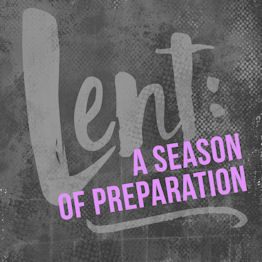|
Volume 38, #6 Plant these "seeds" well and water often. Enjoy!
Look and Listen . . . . . . . Robert A. Millikan "My message to you is simply Look and Listen! That is, cultivate the habit of attention and try to gain opportunities to hear wise men and women talk. Indifference and inattention are the two most dangerous monsters that you will ever meet. Interest and attention will insure to you an education." Kindness . . . . . . . Chinese proverb "Kindness at home is better than incense burnt in remote places." Value of Life . . . . . . . Michel de Montaigne "The value of life lies not in its time span but in the way we use it; a man may live long yet get little from life. It depends on your own will, rather than on the length of your years, whether your life has been sufficient." Chinese Proverb "Books speak to the mind, God’s Side . . . . . . . Complete Speaker’s Almanac "Voltaire is supposed to have said in 1770, ‘It is said that God is always for the big battalions.’…We all claim God for our side. We all deny God to the other side. We see the world in black and white, when in fact there is a whole rainbow of colors — and of rightness and wrongness — in between. That is the case today to a frightening degree, particularly with the single-issue political groups who see only evil except for their own specialized cause, and who carry on their guerilla warfare under self-proclaimed holy banners. Nobody has a patent on morality — or on God’s will." Telling Stories . . . . . . . Lincoln on Leadership "[Abraham] Lincoln to a friend explained: ‘They say I tell a great many stories. I reckon I do; but I have learned from long experience that plain people, take them as they run, are more easily influenced through the medium of a broad and humorous illustration than in any other way.’" Awareness . . . . . . . Anthony De Mello, SJ
Francis Stroud said, ‘[De Mello’s] work was all about waking people up to the reality of their greatness.…proclaiming the message of awareness, seeing the light we are to ourselves and to others, recognizing we are better than we know.’" Denial . . . . . . . Dr. Conrad Baars, Born Only Once"Denial as a way of relating to another person seems to be much easier for most of us than affirmation. It seems second nature for many of us to spot the faults and shortcomings of another person, and to point them out to him. Whether we do this in order to make him feel ashamed ‘for his own good’ or because we want to appear helpful, it cannot be considered affirmation. And if we claim that we accept another it may be only too often in the expectation that he change and become more like us." Solitude . . . . . . . Henri Nouwen, WEAVINGS, Vol. III, # 1"In solitude we discover the inner space where our creativity finds its roots and from which our vitality springs.…In solitude we find that our call is not to be occupied or preoccupied, not to be filled with opinions and judgments, but first of all to have the inner space, the inner emptiness into which God can enter and teach us who we really are." Challenges . . . . . . . Steve Allen "We should be grateful for the challenges we face, for without challenge, one does not grow. If you are never threatened, you’ll never discover the limit of your courage. If you’re never puzzled, you’ll never determine the extent of your intelligence." Two Carefree Days . . . . . . . Robert Jones Burdette"There are two days in the week about which and upon which I never worry. Two carefree days, kept sacredly free from fear and apprehension. One of these days is Yesterday. And the other day I do not worry about is Tomorrow." Lateral Thinking . . . . . . . Earl Nightingale, Insight, # 57"It’s been said that the solution to every problem is so close, you can reach out and touch it. But you can’t touch it with your hand until you touch it with a bit of lateral creative thinking. Children seem to be better at lateral thinking than grown-ups, unless grown-ups work at it, practice it. And they can learn the knack — or perhaps, relearn it would be more appropriate. We all were highly creative children at one time, before we had it worn off or knocked out of us by unimaginative, dull adults." Self-Respect . . . . . . . Alfred Whitney Griswold "Self-respect cannot be hunted. It cannot be purchased. It is never for sale. It cannot be fabricated out of public relations. It comes to us when we are alone, in quiet moments, in quiet places, when we suddenly realize that, knowing the good we have done it; knowing the beautiful, we have served it; knowing the truth, we have spoken it." The Inner Journey . . . . . . . George Aschenbrenner, SJ
All sorts of life experiences, whether dramatically critical or boringly ordinary, can frustrate and dissatisfy enough to provoke this need or desire for greater reflection on the spiritual and radically religious meaning of life. And as the spiritually primitive person stirs out of unreflectiveness and moves toward greater seriousness, precisely what is needed is enlightenment in faith." Persistence . . . . . . . Soundings, Vol. 5, # 1"Brains and ability are a big help in achieving success in this world. But so is a plain, ordinary character trait called persistence. Success rarely comes easy. Most times you have to try and fail, try then fail again, and keep trying. People who achieve outstanding success rarely do so on the first attempt. But they never quit. They keep on trying until they achieve their goal. Those of us who don’t realize this often give up too quickly. We don’t achieve the success we might have because we don’t stick to it long enough.…No matter how brilliant or talented…, it takes persistence to reach worthwhile goals." Tune-up Time . . . . . . . Voicings Publ. During the life of any automobile, there are times when it needs to be serviced. We take it off the road and into a shop for a tune-up. A mechanic examines the car and then makes the adjustments necessary for it to function according to certain fixed standards. The same is true in the life of a piano when it gets out of tune. We call a piano tuner. The tuner first strikes the U-shaped fork which is tuned to a standard international pitch. He tightens or loosens the A-string in the piano’s middle octave until the two sounds match. Then he proceeds with the work of adjusting each string to the standard pitch. In the life of each of us, there are times when we need to take our self off the road, so to speak, for a spiritual tune-up; times when we need to adjust the pitch of our heart- strings to the eternal standard; times when we need to reshape our attitude and approach to life in a way that makes it possible for us to measure up to our true potential. What is the eternal standard to which we must aspire in order to achieve wholeness of life? Everywhere there are clues! We find them in the lives of other persons. We find them at the deep levels of our own being. We find them in experiences of great joy and deep sorrow. We find them when we pray. We find them in literature and music and art and drama and work. Most importantly, we find them in the Word of God during Lent. And when it’s time to adjust the "heart- strings," when it’s tune-up time for the soul, we listen to the word of God in Holy Scripture for the eternal standard.
|


 "Spirituality means waking up. Most people, even though they don’t know it
are asleep. They are born asleep, they live asleep,…they die in their sleep
without ever waking up.
"Spirituality means waking up. Most people, even though they don’t know it
are asleep. They are born asleep, they live asleep,…they die in their sleep
without ever waking up. "People will remain spiritually primitive until a need or desire for some
reflective slowing down and questioning of their natural spontaneity grows in
their hearts.
"People will remain spiritually primitive until a need or desire for some
reflective slowing down and questioning of their natural spontaneity grows in
their hearts.
